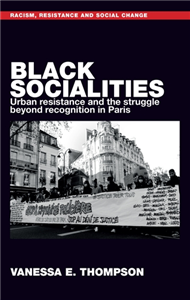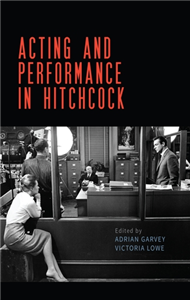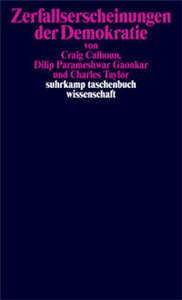Your Search Results
-
Promoted Content
-
Promoted ContentThe ArtsJanuary 2019
Joseph Losey
by Colin Gardner
The career of Wisconsin-born Joseph Losey spanned over four decades and several countries. A self-proclaimed Marxist and veteran of the 1930s Soviet agit-prop theater, he collaborated with Bertholt Brecht before directing noir B-pictures in Hollywood. A victim of McCarthyism, he later crossed the Atlantic to direct a series of seminal British films such as "Time Without Pity," "Eve," "The Servant," and "The Go-Between," which mark him as one of the cinema's greatest baroque stylists. His British films reflect on exile and the outsider's view of a class-bound society in crisis through a style rooted in the European art house tradition of Resnais and Godard. Gardner employs recent methodologies from cultural studies and poststructural theory, exploring and clarifying the films' uneasy tension between class and gender, and their explorations of fractured temporality.
-
 Trusted Partner
Humanities & Social SciencesMarch 2026
Trusted Partner
Humanities & Social SciencesMarch 2026Black socialities
Urban resistance and the struggle beyond recognition in Paris
by Vanessa Eileen Thompson
From author: This is a cutting-edge exploration of black urban politics in Parisian racialized working class and working poor districts, the formation of abolition geography, and the possibilities of new forms of political blackness. In Black Socialities. Urban resistance and the struggle beyond recognition in Paris, Vanessa E. Thompson argues that black urban politics in the French banlieues are multi-racial and spatially grounded towards abolition. Based on a close engagement with urban black activist practices against racial imagery in the city, policing and state racism, and housing insecurity, she shows how radical anti-racism goes beyond struggles for recognition and unfolds alongside new formations of political blackness that is based on urban conviviality. This form of black politics has much to teach us in this current conjuncture of liberal anti-racism and state recognition politics.
-
 Trusted Partner
Trusted Partner
-
 Trusted Partner
Trusted Partner
-
 Trusted Partner
Biography & True StoriesFebruary 2024
Trusted Partner
Biography & True StoriesFebruary 2024Revolutionary lives of the Red and Black Atlantic since 1917
by David Featherstone, Christian Høgsbjerg, Alan Rice
Revolutionary lives of the Red and Black Atlantic brings to light the life histories of a wide range of radical figures whose political activity in relation to the black liberation struggle was profoundly shaped by the global impact and legacy of the Russian Revolution of October 1917. The volume introduces new perspectives on the intellectual trajectories of well-known figures and critical activists including C. L. R. James, Paul Robeson, Walter Rodney and Grace P. Campbell. This biographical approach brings a vivid and distinctive lens to bear on how racialised social and political worlds were negotiated and experienced by these revolutionary figures, and on historic black radical engagements with left political movements, in the wake of the Russian Revolution.
-
 Trusted Partner
The ArtsMarch 2026
Trusted Partner
The ArtsMarch 2026Acting and performance in Hitchcock
by Adrian Garvey, Victoria Lowe
Hitchcock's professed disdain for actors is belied by the extraordinary range and depth of performances featured in his films. It might even be argued that many stars gave their richest and most complex performances in his work. Hitchcock's films are also imbued with the theme of performance, as when his fugitive men and errant women assume fragile new identities and move between roles. Actors and other performers also often feature as characters. However, the exhaustive academic literature on Hitchcock has to date produced surprisingly little work about acting and performance in his films. The collection includes contributions from a range of leading scholars on Hitchcock, performance, stardom, and British Cinema, including Charles Barr, David Greven, Mark Glancy, Lucy Bolton, Lawrence Napper and Michael Williams, and an interview with leading composers/accompanists Neil Brand and Stephen Horne on scoring performance in Silent Hitchcock.
-
 Trusted Partner
Humanities & Social SciencesAugust 2021
Trusted Partner
Humanities & Social SciencesAugust 2021The Red and the Black
The Russian Revolution and the Black Atlantic
by David Featherstone, Christian Høgsbjerg
The Russian Revolution of 1917 was not just a world-historical event in its own right, but also struck powerful blows against racism and imperialism, and so inspired many black radicals internationally. This edited collection explores the implications of the creation of the Soviet Union and the Communist International for black and colonial liberation struggles across the African diaspora. It examines the critical intellectual influence of Marxism and Bolshevism on the current of revolutionary 'black internationalism' and analyses how 'Red October' was viewed within the contested articulations of different struggles against racism and colonialism. Challenging European-centred understandings of the Russian Revolution and the global left, The Red and the Black offers new insights on the relations between Communism, various lefts and anti-colonialisms across the Black Atlantic - including Garveyism and various other strands of Pan-Africanism. The volume makes a major and original intellectual contribution by making the relations between the Russian Revolution and the Black Atlantic central to debates on questions relating to racism, resistance and social change.
-
 Trusted Partner
SociologyJanuary 2017
Trusted Partner
SociologyJanuary 2017Sport in the Black Atlantic
Cricket, Canada and the Caribbean diaspora
by Janelle Joseph. Series edited by John Horne
This book outlines the ways sport helps to create transnational social fields that interconnect migrants dispersed across a region known as the Black Atlantic: England, North America and the Caribbean. Many Caribbean men's stories about their experiences migrating to Canada, settling in Toronto, finding jobs and travelling involved some contact with a cricket and social club. This book offers a unique contribution to black diaspora studies through showing sport as a means of allaying the pain of ageing in the diaspora, creating transnational social networks and marking ethnic boundaries on a local scale. The book also brings black diaspora analysis to sport research, and through a close look at what goes on before, during and after cricket matches provides insights into the dis-unities, contradictions and complexities of Afro-diasporic identity in multicultural Canada. It will be of interest to students and scholars in sociology, sport studies and black diaspora studies.
-
 Trusted Partner
Trusted Partner
-
 Trusted Partner
Literature & Literary StudiesJune 2021
Trusted Partner
Literature & Literary StudiesJune 2021Cormac McCarthy
by Lydia R. Cooper, Sharon Monteith, Nahem Yousaf
-
 Trusted Partner
Literature & Literary StudiesJune 2023
Trusted Partner
Literature & Literary StudiesJune 2023Cormac McCarthy
A complexity theory of literature
by Lydia R. Cooper
Combining the fields of evolutionary economics and the humanities, this book examines McCarthy's literary works as a significant case study demonstrating our need to recognise the interrelated complexities of economic policies, environmental crises, and how public policy and rhetoric shapes our value systems. In a world recovering from global economic crisis and poised on the brink of another, studying the methods by which literature interrogates narratives of inevitability around global economic inequality and eco-disaster is ever more relevant.
-
 Trusted Partner
February 2024
Trusted Partner
February 2024Zerfallserscheinungen der Demokratie
by Craig Calhoun, Dilip Parameshwar Gaonkar, Charles Taylor, Andreas Wirthensohn
Mit analytischer Schärfe zeichnen Craig Calhoun, Dilip Parameshwar Gaonkar und Charles Taylor in diesem Buch aus unterschiedlichen Perspektiven die Aushöhlung unserer Demokratie nach. Sie beleuchten, wie die herrschenden Eliten versuchen, ihre Privilegien zu sichern, und wie individuelle Freiheit zum Feind von Gleichheit und Solidarität wurde. Aber sie zeigen auch Wege einer möglichen demokratischen Erneuerung auf: Zum einen gilt es, die Idee des Gemeinwohls wiederzuentdecken und an republikanische Traditionen anzuschließen, zum anderen könnten soziale Bewegungen wie Black Lives Matter oder der Green New Deal als Kompass dienen. Ein Weckruf.
-
 Trusted Partner
January 1982
Trusted Partner
January 1982Das Joseph Conrad Buch
Über mich selbst, Weihe, Tremolino, Idioten, Amy Foster, Das Herz der Finsternis, Taifun
by Conrad, Joseph / Beiträge von Woolf, Virginia; Nachwort von Buchheim, Lothar G
-
 Trusted Partner
Trusted Partner
-
 Trusted Partner
Humanities & Social SciencesJanuary 2024
Trusted Partner
Humanities & Social SciencesJanuary 2024The debate on Black Civil Rights in America
by Kevern Verney
-
 Trusted Partner
Humanities & Social SciencesMarch 2017
Trusted Partner
Humanities & Social SciencesMarch 2017Travellers in Africa
British travelogues, 1850-1900
by Timothy Youngs
Works of travel have been the subject of increasingly sophisticated studies in recent years. This book undermines the conviction with which nineteenth-century British writers talked about darkest Africa. It places the works of travel within the rapidly developing dynamic of Victorian imperialism. Images of Abyssinia and the means of communicating those images changed in response to social developments in Britain. As bourgeois values became increasingly important in the nineteenth century and technology advanced, the distance between the consumer and the product were justified by the scorn of African ways of eating. The book argues that the ambiguities and ambivalence of the travellers are revealed in their relation to a range of objects and commodities mentioned in narratives. For instance, beads occupy the dual role of currency and commodity. The book deals with Henry Morton Stanley's expedition to relieve Emin Pasha, and attempts to prove that racial representations are in large part determined by the cultural conditions of the traveller's society. By looking at Joseph Conrad's Heart of Darkness, it argues that the text is best read as what it purports to be: a kind of travel narrative. Only when it is seen as such and is regarded in the context of the fin de siecle can one begin to appreciate both the extent and the limitations of Conrad's innovativeness.
-
 Trusted Partner
Biography & True StoriesApril 2022
Trusted Partner
Biography & True StoriesApril 2022Revolutionary lives of the Red and Black Atlantic since 1917
by David Featherstone, Christian Høgsbjerg, Alan Rice, Satnam Virdee, Aaron Winter, John Solomos
-
 Trusted Partner
October 1983
Trusted Partner
October 1983Heinrich Heine
Leben und Werk in Daten und Bildern
by Joseph Anton Kruse, Joseph Anton Kruse
Joseph A. Kruse, 1944 in Dingden bei Bocholt (heute Hamminkeln) geboren, ist seit 1975 Direktor des Heinrich-Heine-Instituts in Düsseldorf; 1986 wurde er zum Honorarprofessor an der Heinrich-Heine-Universität Düsseldorf ernannt. Er gibt u. a. das Heine-Jahrbuch und die Heine-Studien heraus und hat zahlreiche Publikationen zu Heine und seiner Zeit sowie zu den Sammlungen des Heine-Instituts veröffentlicht. Joseph A. Kruse, 1944 in Dingden bei Bocholt (heute Hamminkeln) geboren, ist seit 1975 Direktor des Heinrich-Heine-Instituts in Düsseldorf; 1986 wurde er zum Honorarprofessor an der Heinrich-Heine-Universität Düsseldorf ernannt. Er gibt u. a. das Heine-Jahrbuch und die Heine-Studien heraus und hat zahlreiche Publikationen zu Heine und seiner Zeit sowie zu den Sammlungen des Heine-Instituts veröffentlicht.
-
 Trusted Partner
January 1980
Trusted Partner
January 1980Aus dem Leben eines Taugenichts
by Joseph Eichendorff
Joseph Freiherr von Eichendorff wurde am 10. März 1788 auf Schloß Lubowitz in Oberschlesien geboren und starb am 26. November 1857 in Neiße. 1804-06 Philosophie- und Jurastudium in Breslau und Halle, ab 1807 in Heidelberg, wo er u.a. mit Joseph von Görres zusammentraf. 1808 Reise nach Paris. Begegnung mit Achim von Arnim und Clemens Brentano. Abschluß des Studiums in Wien. Begegnung mit Friedrich und Dorothea Schlegel. 1815 Heirat mit Luise von Larisch. Ab 1819 Anstellung beim Kultusministerium Berlin, später kommissarischer Schulrat für Westpreußen und Danzig. 1824-31 Oberpräsidialrat und Mitglied der ostpreußischen Regierung Königsberg. Bekanntschaft u. a. mit Savigny und Adelbert von Chamisso in Berlin. 1844 Entlassung aus dem Staatsdienst. 1855 Übersiedlung nach Neiße.

























